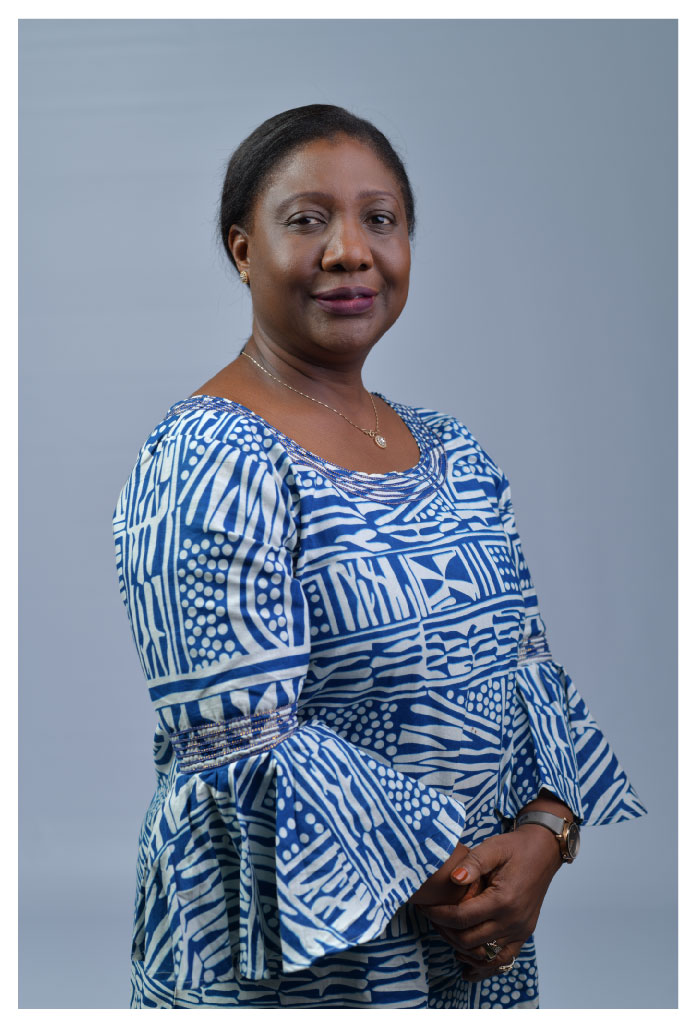Up Close and Personal with Mrs Estherine Lisinge-Fotabong, Director of Agriculture, Food Security and Environmental Sustainability

At the Conference of Parties 28 in Dubai, we had the chance to interview Ms Estherine Lisinge-Fotabong, Director of Agriculture, Food Security, and Environmental Sustainability at the African Union Development Agency-NEPAD. Our conversation covered diverse topics related to Climate Change, including Soil Health, Carbon Markets, Africa’s stance on financing resilience to climate change, and other COP28 deliberations.
 1. AUDA-NEPAD organized a Ministerial Session focusing on integrating food systems into Africa’s financial models. Do you believe the discussions achieved the necessary outcomes for political support and funding at the ministerial level?
1. AUDA-NEPAD organized a Ministerial Session focusing on integrating food systems into Africa’s financial models. Do you believe the discussions achieved the necessary outcomes for political support and funding at the ministerial level?
The Ministerial session was proceeded by a presidential round table on leveraging investment for climate adaptation through food systems transformation. This kinds of dialogue are very informative. Countries get to share experiences and learn from one another, to improve on their programmes and processes. During the presidential round table, the Green Climate Fund announced the sum of $100 Million for Burkina Faso, Kenya, Malawi, Tanzania, Zambia, Uganda and Ethiopia to support adaptation in food systems.
2. Regarding Carbon Markets in Africa, who should fund them, and how will increased funding benefit the continent?
Before getting into funding of carbon markets in Africa, there are still outstanding issues that need to be clarified to get the continent well equipped for carbon markets. These include awareness on the dynamics on carbon market. Issues around carbon pricing need to be resolved. In view of these issues, AUDA-NEPAD is working with relevant partners to build the capacity of member states as part of readiness for carbon markets. The Agency launched a report at COP 28 on the status of carbon market in Africa. It will build on the report to strengthen the capacity of member states and the development of African Gold Standard for Carbon Trading.
3. Despite Africa contributing the least to climate change emissions, the impact on the continent is substantial. What stance should Africa adopt regarding climate mitigation?
Africa’s focus has been on adaptation. The continent needs about 250 Million US Dollars annually to adapt to climate change. The continent needs to first, adapt to the effects of climate change, before mitigation. Adaptation is another form of mitigation because when you build resilience in communities, it is a starting points towards mitigation. People will get more appreciative of the natural habitats and do more to protect the environment. Domestication of the various declaration made at COP 28, such as on agriculture, food systems and health will go a long way towards adaptation. I addition, easier access to global adaptation funds will support the continents efforts on adaptation. While appreciating that every nation should be part of the energy transition to get to zero carbon, how Africa nations will contribute to the transition will have to ensure that no one in their country is left behind within their developmental aspirations. It is therefore that far more finance is mobilized for developing countries to help make the energy transition possible.
4. Let’s discuss Africa’s Soil Health – how can we safeguard and enhance our soil to ensure it continues to sustain the masses amidst Climate Change?
Transformative agriculture and food systems in Africa is hinged on a heathy soil amongst other factors. In essence, a transformation to climate resilient food systems in Africa is possible when adequate attention and investment is focused on restoring soil health. In addition, indigenous approaches for land use and land management that are nature positive need to be revived and promoted as they can be the basis for soil health improvements. AUDA-NEPAD is well positioned to support investments in soil health on the continent, including to galvanize action by all key stakeholders including Governments, private sector, development stakeholders and farmers.
5. Could you elaborate on the partnership discussions that took place on the sidelines of COP28?
One of AUDA-NEPAD’s mandates is to act as the continent’s technical interface on policy recommendation and implementation with partners and stakeholders. AUDA-NEPAD held several meetings with member states, development partners and none governmental organisations. Discussions focused on how best to support adaptation efforts in the continent. Various partners recognised the unique position of the Agency in the continent. Part of the discussions was to build alignments to replicate results of projects implemented by AUDA-NEPAD. In addition, AUDA-NEPAD signed a partnership agreement with the Africa-Europe Foundation (AEF) to monitor implementation of agreements signed between Europe and Africa.
